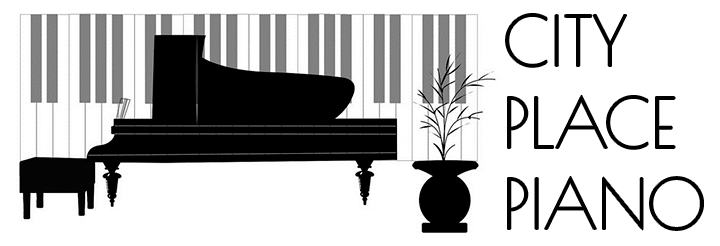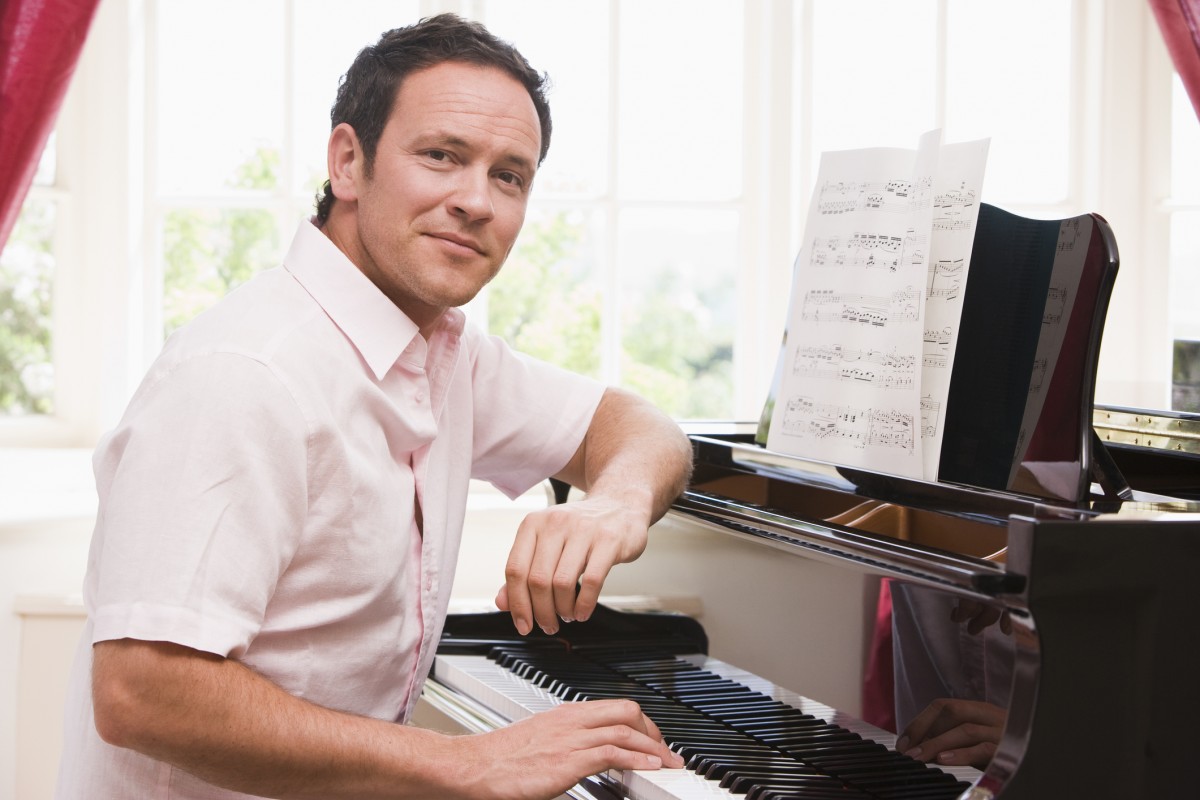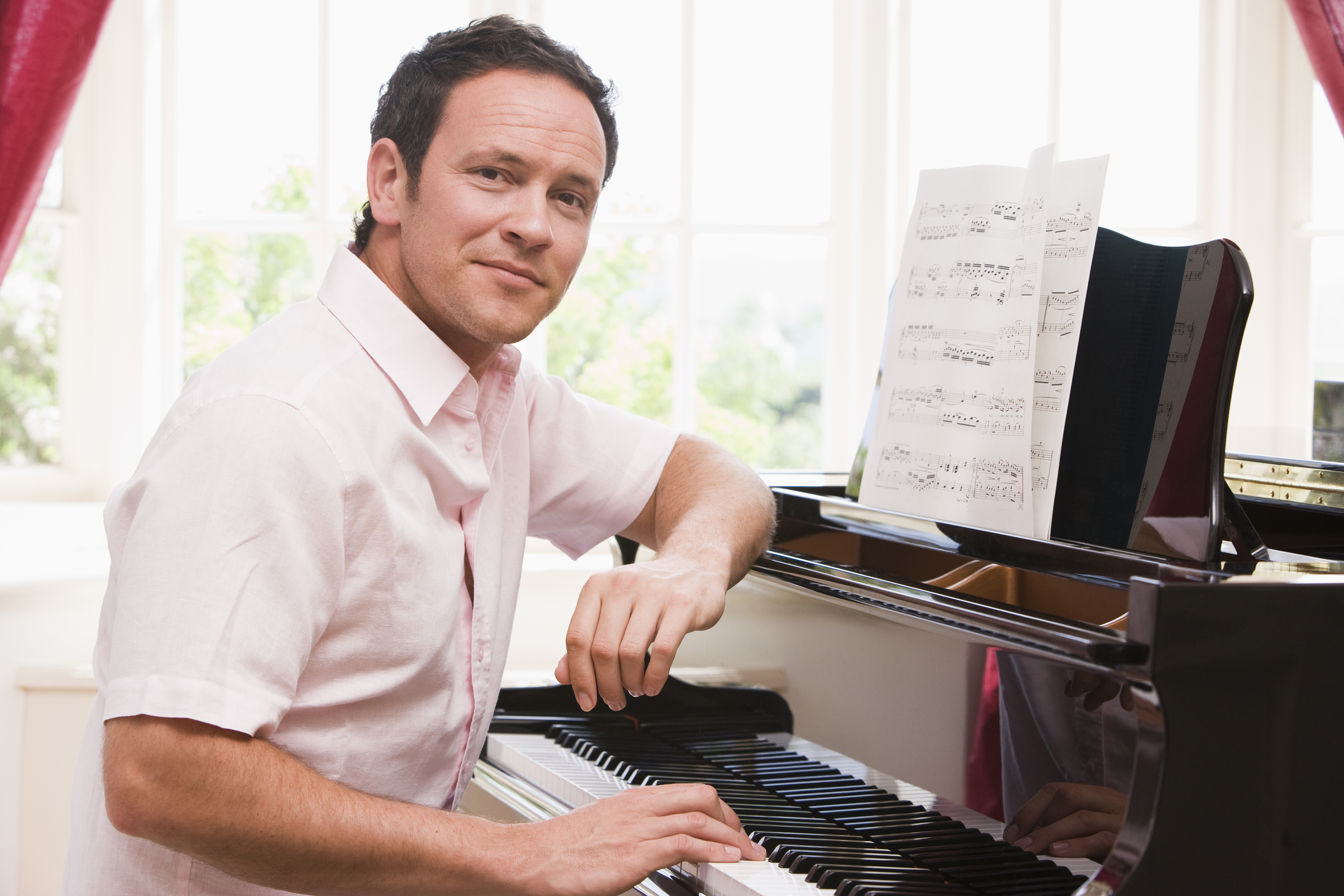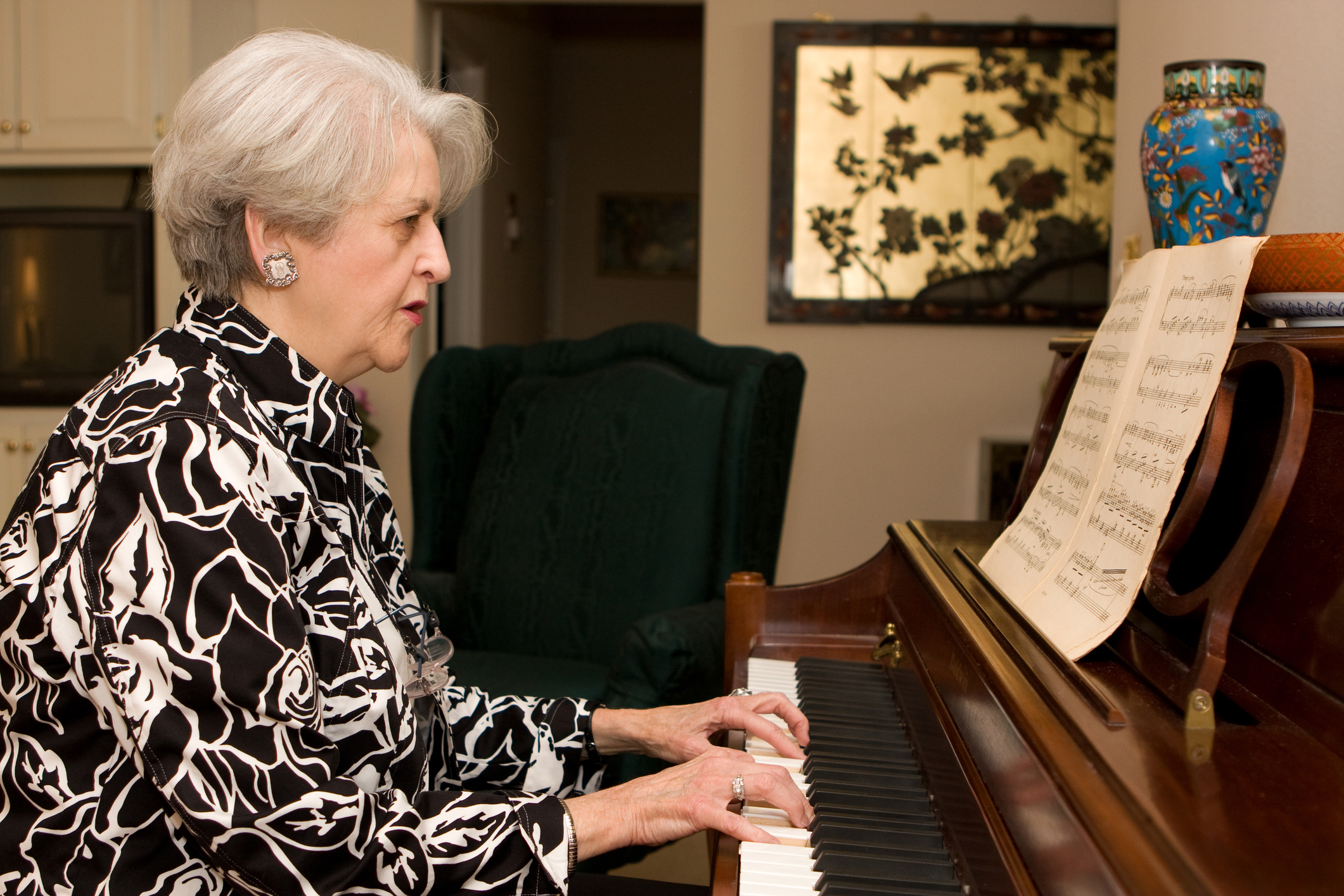Today, more and more adults are taking piano lessons. Many adult piano students find that playing beautiful music relaxes them after a long day at work. Piano lessons are a wonderful outlet for feelings, emotions and stress! Mastering each piece of music provides a great sense of value and enjoyment. Lessons also improve one’s discipline, focus and concentration. It is impossible to count the number of times we piano teachers have heard, “I wish I had learned piano as a child.”
Adults assume that if they didn’t learn to play piano as a child, then it’s simply too late. Some adults may have had bad experiences or became too busy with other activities and now realize the importance of music in their lives. Professional people have discovered that piano playing is one of the most relaxing things they can do after work. It allows them to get their minds off the activities of the day and just focus on the pleasure of making their own music. Some adults have even taken it a step further and become proficient enough to play at social events and parties. Learning or re-learning piano as an adult can be very rewarding. Not only will you improve your piano skills you will stimulate your brain. Adults who take piano lessons often report a better ability to concentrate. Many also realize a greater aptitude for learning other new skills. These things carry over into other parts of adult life, from work, to hobbies and even raising children.
Musical study can play an important role in helping seniors keep a sharp mind. Research has linked playing an instrument to the stimulation of areas of the brain involved with memory, which may have implications in preventing Alzheimer’s disease and other forms of dementia.
For example, a 21-year study by the Albert Einstein College of Medicine in the Bronx followed 469 seniors between the ages of 75 and 85 who did not have dementia at beginning of the study. The results, which were published in the New England Journal of Medicine in 2003, demonstrated a strong association between cognitively challenging leisure activities, including playing a musical instrument, and a decreased risk of developing dementia. Another study, conducted in an Illinois retirement home, revealed that seniors, ranging in age from their late 70s to early 90s, saw a 50 to 70% improvement in their memory after just 16 weeks of learning a new musical instrument. It is believed that the processes involved in playing a musical instrument may provide the cognitive exercise the brain needs to protect itself against memory loss. Physical Benefits Physical health and playing an instrument also seem to go hand in hand. Research by Dr. Frank Wilson of the University Of California School Of Medicine in San Francisco found that learning to play a musical instrument, besides bettering concentration and memory, also enhanced physical abilities such as coordination and even the improvement of eyesight and hearing.
Another study, the Music Making and Wellness Project, documented that seniors given keyboard lessons had a 90 percent increase in their levels of human growth hormone (hGH), a chemical important in slowing such aging factors as osteoporosis, wrinkling and aches and pains.
Learning to play music can help seniors with depression. The Music Making and Wellness Project also discovered that the seniors who learned to play the keyboard reported decreased depression, lessened anxiety and lowered loneliness levels. A research study led by Dr. Barry Bittman found that playing a musical instrument reduced stress more than other relaxing activities such as reading the newspaper.
Not only are adult piano lessons more often than not extremely rewarding, but adults have a number of advantages in learning piano compared to children.
- Older musicians stay mentally sharp.
- Aging musicians perform much better on cognitive tests than people the same age who do not play a musical instrument. Brenna Hanna-Pladdy of Emory University studied 70 adults between the ages of 60-83 and found that the musicians who played an instrument at the highest level received significantly higher scores than the non-musicians in tasks that test the brain’s ability to adapt to new information.
- These studies have discovered that profound benefits arise from learning to play a musical instrument. Learning to play the piano from an early age has certainly changed my life in ways I could never have imagined. Yes, there are cognitive benefits to learning an instrument, and it can help stave off degenerative diseases later in life. But perhaps the most important reason to learn an instrument is the simple, pure joy of creating a beautiful melody.
Seven Advantages of Adult Piano Lessons
1. Adults learn of their own volition. Children very often have to be persuaded to practice and attend piano lessons. Adults, on the other hand, don’t need to be dragged, kicking and screaming, to their piano teachers. (Admittedly, I do know some teachers whose lessons I’d be kicking and screaming to avoid.) Adult piano lessons are thus almost invariably a pleasure for both student and teacher.
2. Adults have highly developed logical and critical thinking skills. It is often thought that playing music is a purely creative, right-brained act, but this is by no means the case. As the most emotional of the arts, music indeed favors the Dionysian right brain compared to the Apollonian left. Yet so much of interpreting music is a matter of basic analysis, of understanding music’s harmonic vocabulary and what the composer is doing with the musical material. Playing music without understanding these essentials would be like learning to pronounce syllables in a foreign language but having little or no idea what the words mean.
3. Adults can learn complex concepts much more easily and understand technical explanations. This makes it possible for adults to learn music theory and analysis far more easily than do children. The importance of being able to analyze and understand a piece of music from the beginning of study cannot be overstated. Nothing is more common than students who attain skill on an instrument but who have only a rudimentary understanding of the music, which severely limits their playing in ways they cannot imagine. I believe much of this state of affairs arises from children who learn notes before they are able to comprehend them, and their knowledge of harmony and theory never catches up to their finger skill. Adults, by contrast, are able to grasp the elements of music and musical structures quite readily, like a scientist who understands how the world works.
4. Adults have developed attention spans. Children’s attention spans, by contrast, are often limited to only a few minutes at a time. It takes careful concentration to learn the piano, and adults have a considerable advantage in this regard. Progress on a musical instrument is a matter of accumulating many hours of concentrated, careful practice. (Practicing without concentration is not only unproductive, it is outright destructive to your playing.)
5. Adults are emotionally developed. Music, after all, is the most directly emotional of the arts, and its wide spectrum of emotions can only be expressed and comprehended by those who have experienced those emotions themselves. Emotion in music has very much to do with musical vocabulary (harmony, or how tones combine) and how they extend in time and create musical forms. The former is music’s vertical dimension (notes in relation to one another at any given moment), the latter its horizontal (how notes relate to one another in the listener’s aural memory).
6. Adults are able to read fluently. By contrast, very young children can’t yet read letters or numbers, which necessitates more basic teaching methods. Note names, musical instructions and fingering numbers are not the only things that require the ability to read letters and numbers: the fascinating areas of music history and theory, so critical to playing music competently, do as well.
7. By definition, adults are fully grown, whereas children have as-yet undeveloped muscles. While the hands themselves can and should gain flexibility and strength from practicing piano (and the hand span can even increase), the fingers and palms of adults are fully grown. This simple advantage should not be overlooked in music education. Children who play string instruments, for instance, are forced to adapt to instruments of different sizes as they grow. The violin, for instance, comes in fully eight different sizes! The piano keyboard, by contrast, is only available in one size. (Steinway, however, once made a special piano for the diminutive Josef Hofmann, one with slightly narrower keys.) While only a very few composers (Alkan among them) consistently required large hands, fully grown hands make more music accessible to players.
Remember, it is never too late to learn music! If you’re an adult wishing to commence or resume piano playing, I encourage you to discover your true musicality. Adult piano lessons may be your path to musical fulfillment.



